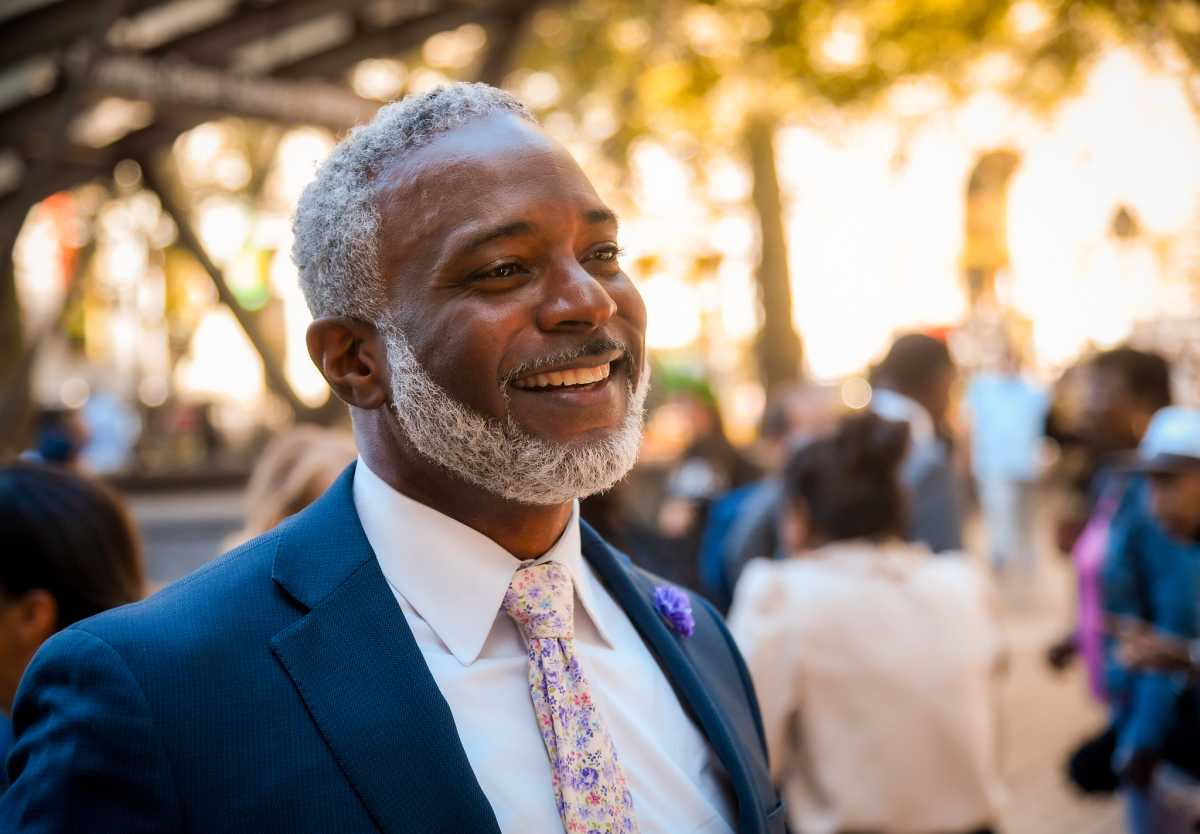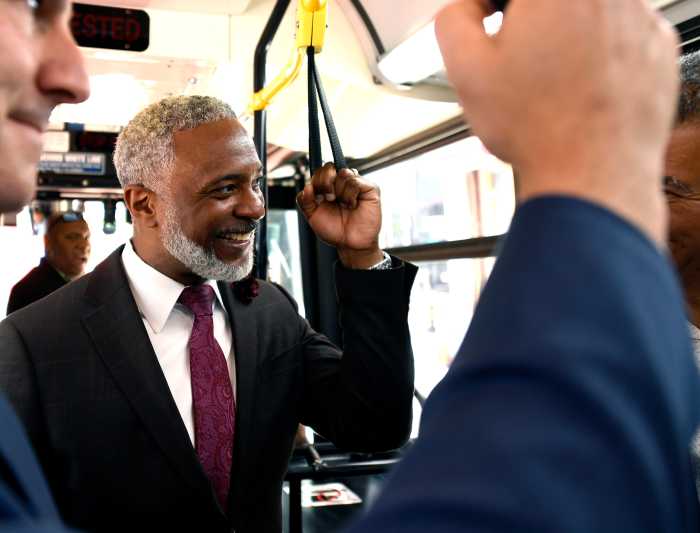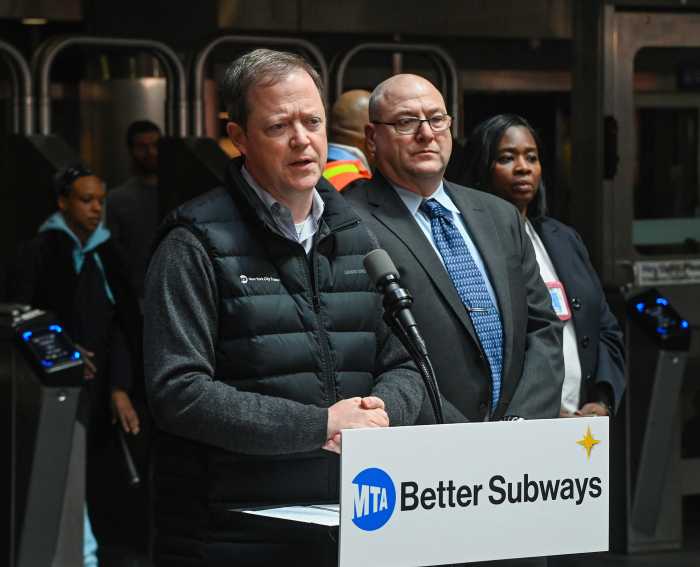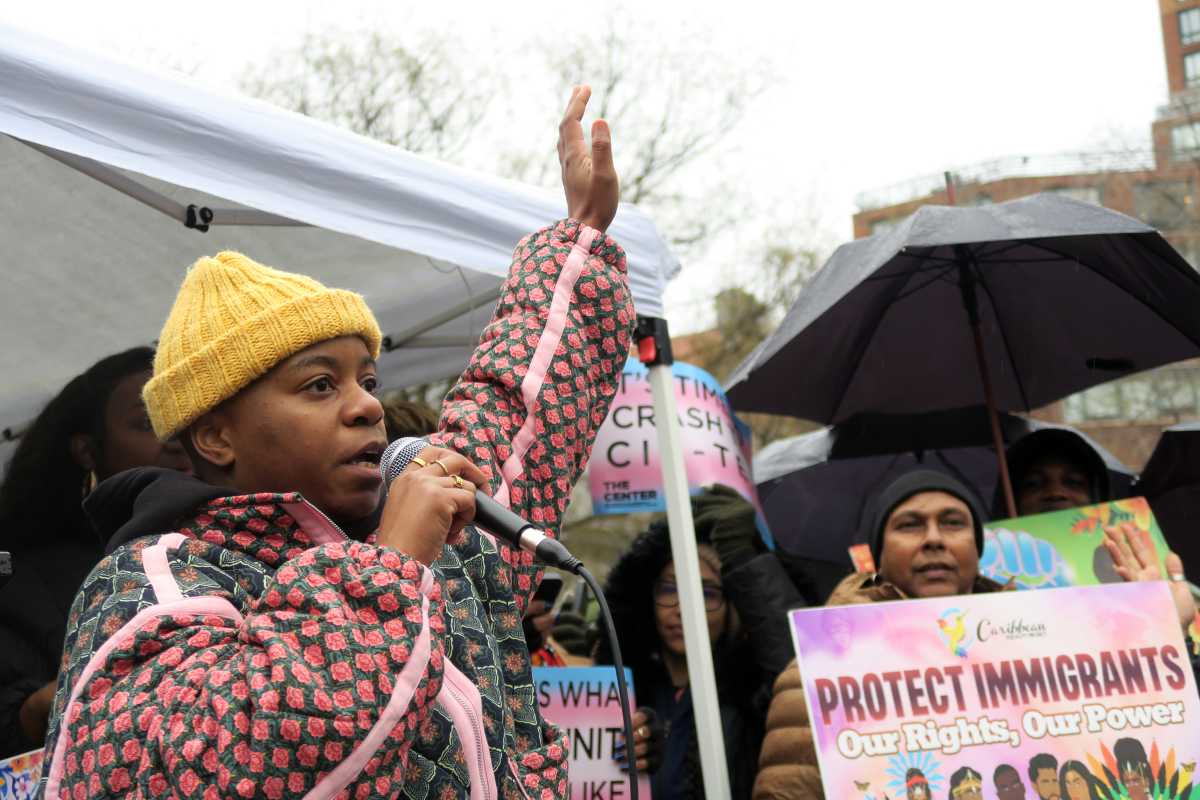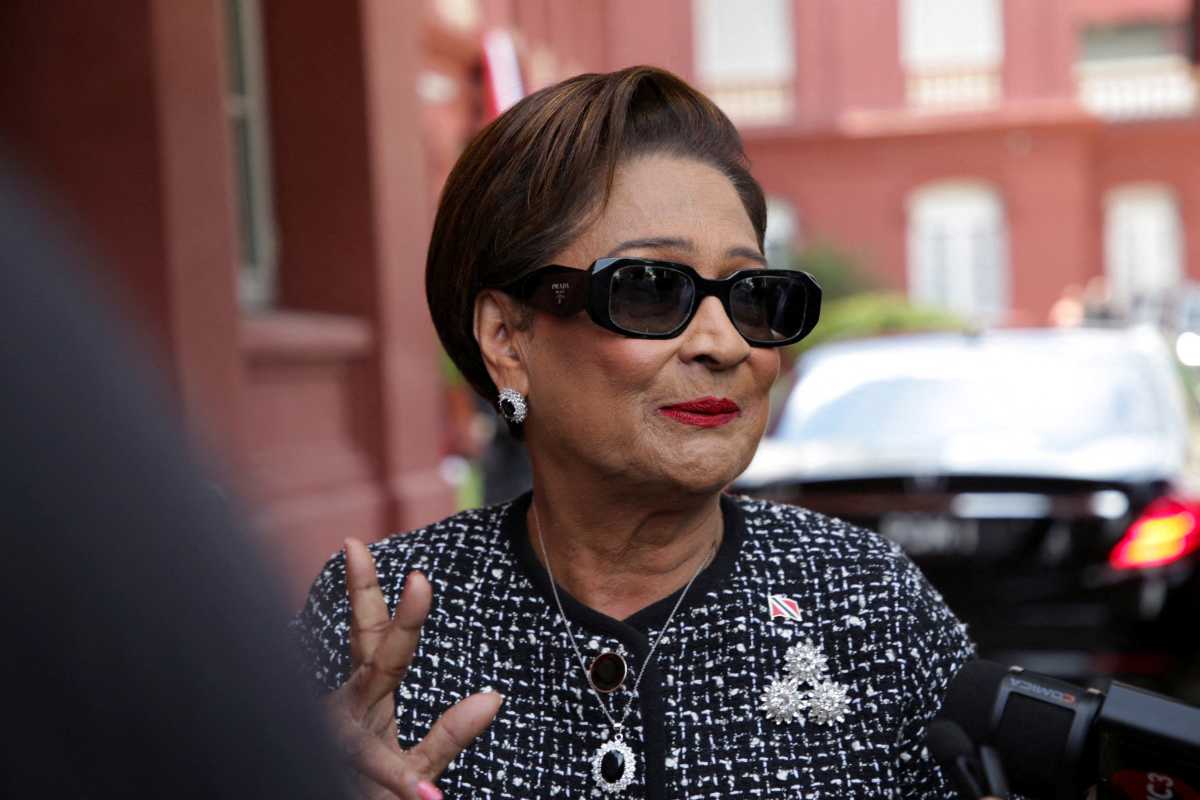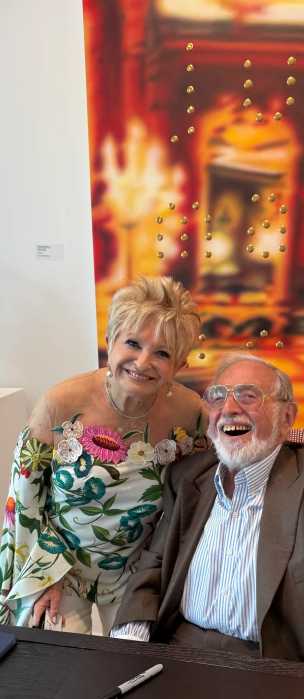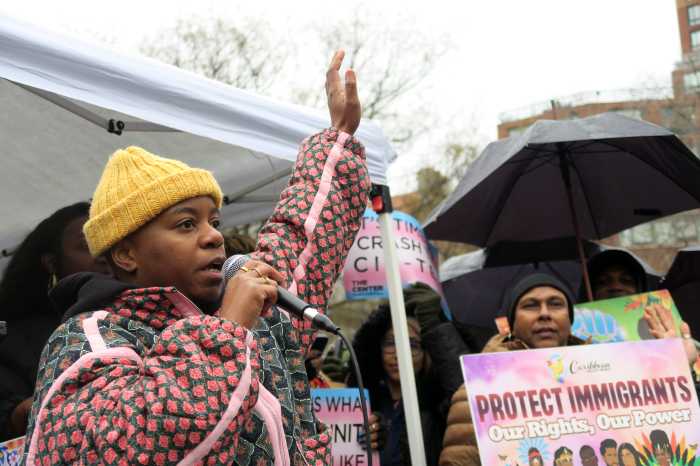Demetrius Crichlow is officially the president of New York City Transit. He shed his interim status overseeing the MTA’s subway, bus, and paratransit operations while promising to stay for the long haul in a tough executive job where retention has been difficult.
MTA Chair and CEO Janno Lieber announced Wednesday that Crichlow, a third-generation MTA employee, had ascended to the top of the totem pole in NYCT, 27 years after beginning his career at the MTA as a signals maintainer for the Long Island Rail Road.
“Demetrius bleeds MTA Blue. It’s been in his family for generations,” said Lieber at the Oct. 23 announcement. “To state the obvious, Demetrius Crichlow really knows our system.”
The MTA “is my life,” Crichlow told reporters on Wednesday. He was promoted to MTA headquarters in 2007 and climbed the ladder to manage the L line, the Staten Island Railway, and the rail control center. He finally became senior vice president of the subways division before he was named interim president of NYCT in June after Richard Davey’s departure.
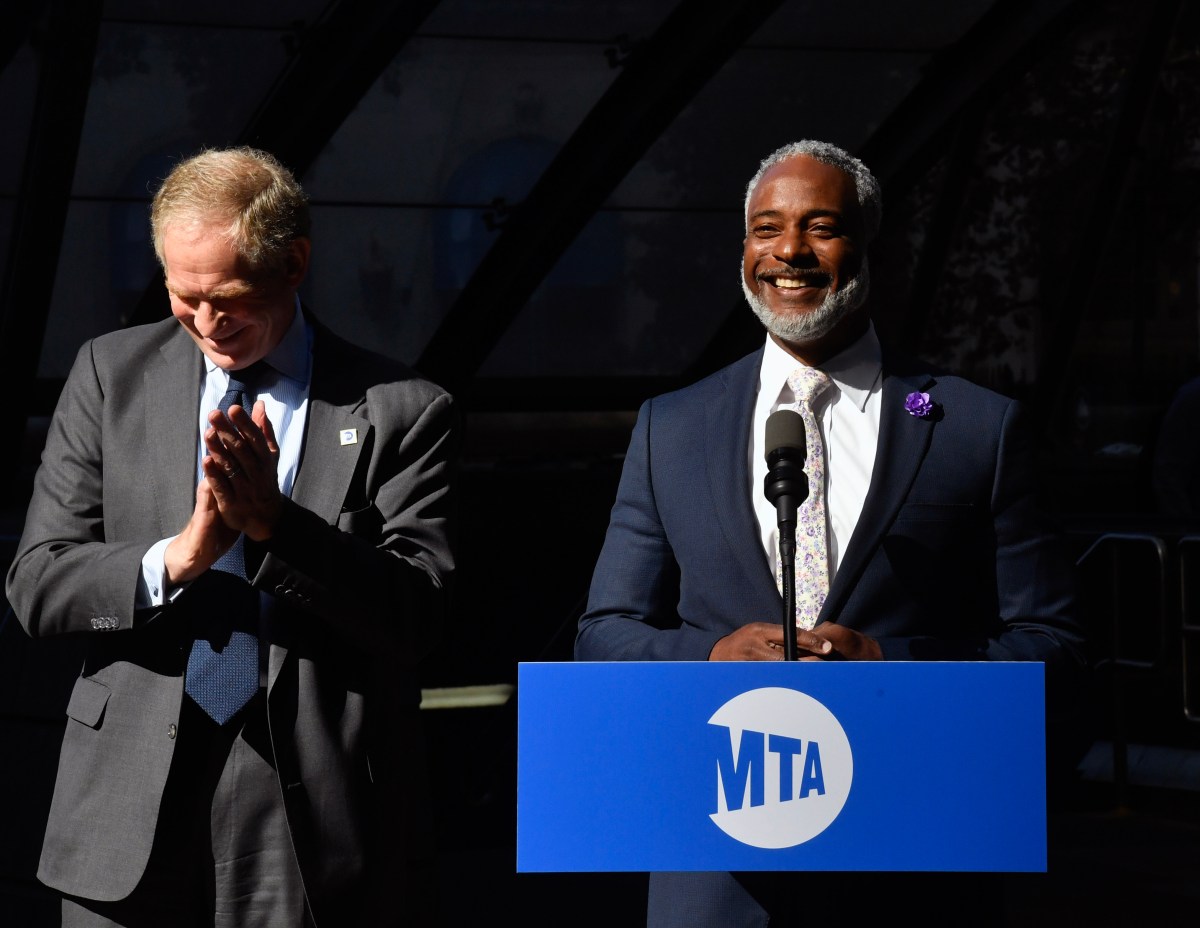
Davey left the agency after just two years to run the Massachusetts Port Authority after just two years. He became the latest in a line of executives who ran for the doors after a relatively short tenure leading Transit. Before Davey, Craig Cipriano led the agency for one year; before that, it was Sarah Feinberg for one year, and before that, Andy “Train Daddy” Byford for two.
Nobody has held the presidency of NYCT for more than three years since Tom Prendergast left the agency in 2013 — after three years and one month on the job.
Crichlow, the first African-American to lead NYCT, promised Wednesday and pledged to remain in his position for between five and seven years.
“Directions change, but the things that are important, our ability to provide service, our ability to provide a safe system, doesn’t change,” said Crichlow. “And so you really need consistent leadership that is going to drive to the point where we need to be.”
“And unfortunately, when you have that much churn within a short period of time, you can lose a lot of steam in between,” Crichlow continued. “So I’m really happy to be able to provide the stability that the organization needs moving forward.”
Meanwhile, Lieber also promoted Tim Mulligan, the chief development officer at MTA Construction & Development, to a new position overseeing procurement of new railcars: Chief of the Rolling Stock Program.
Under the newly proposed capital plan, the MTA intends to cycle out 2,000 of its 6,700 railcars on the subway, LIRR, and Metro-North through the end of this decade. Much of the present fleet dates to the 1970s and 80s and is due for replacement. Mulligan previously oversaw budgeting and program management at the Construction & Development division.
Mersida Ibric, meanwhile, took over permanently as chief people officer, the executive overseeing human resources, after an interim stint. She previously served as deputy chief administrative officer.
Read More: https://www.amny.com/nyc-transit/



